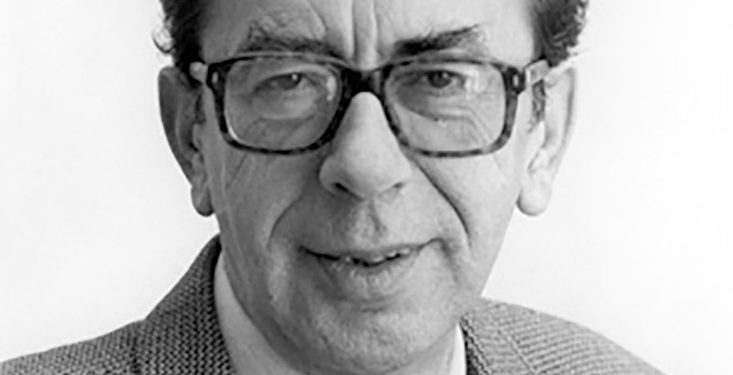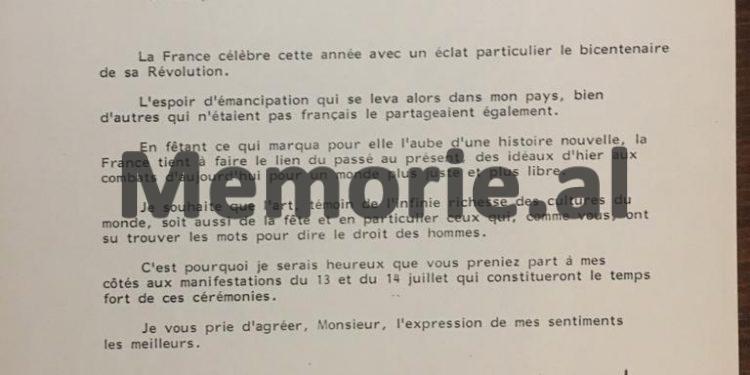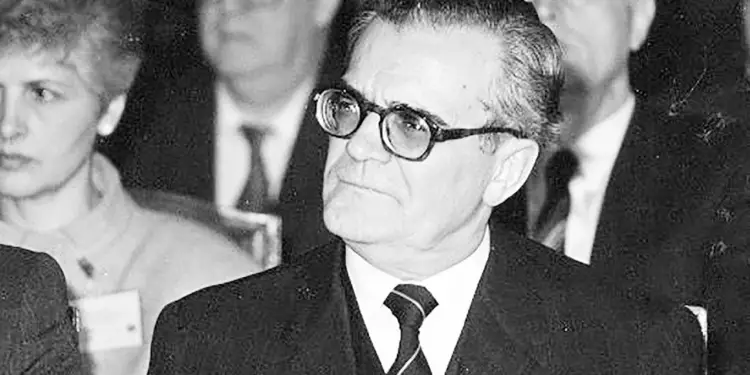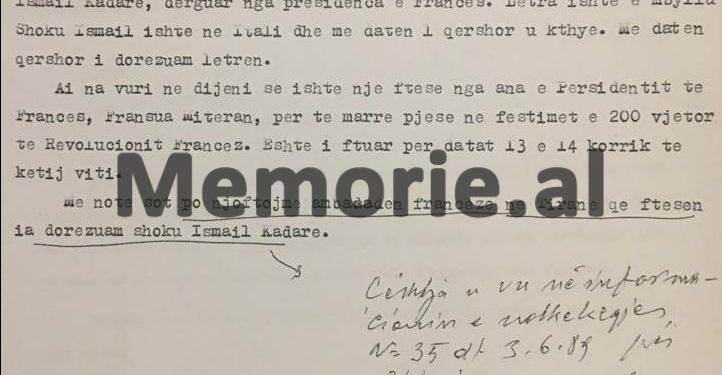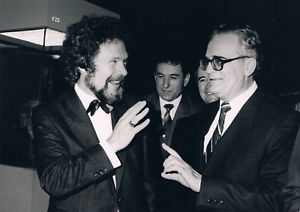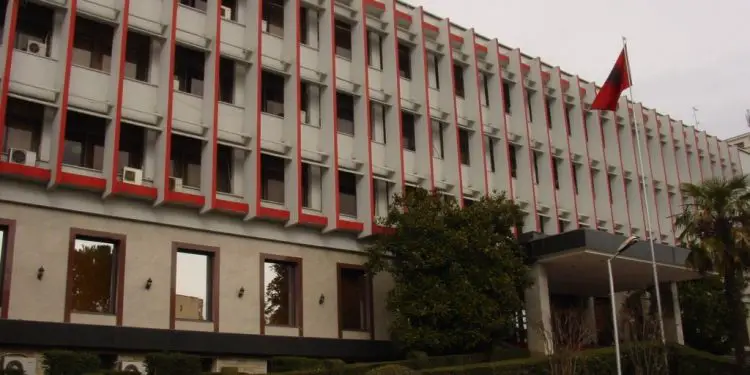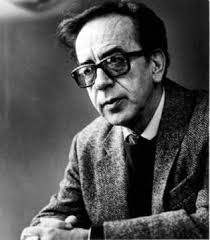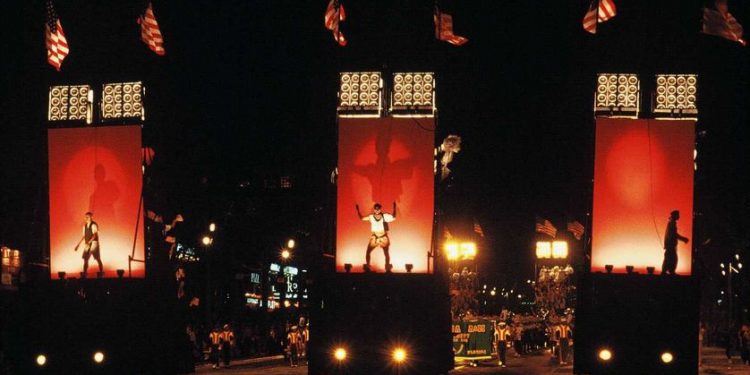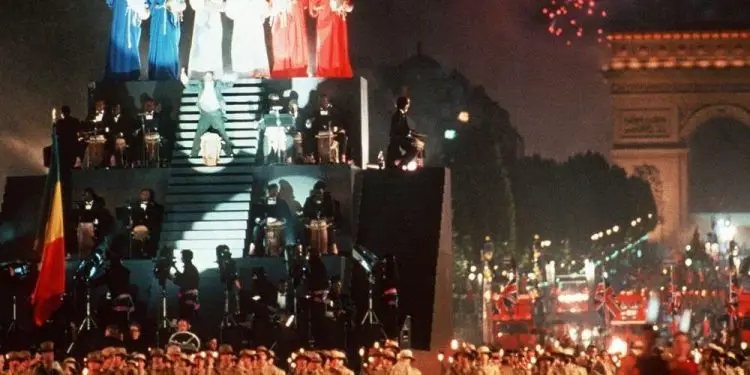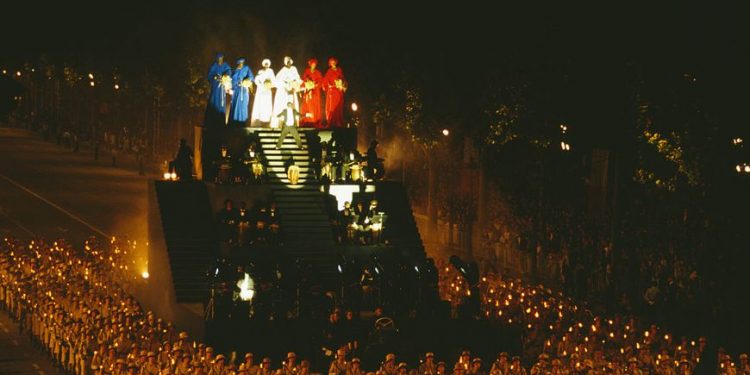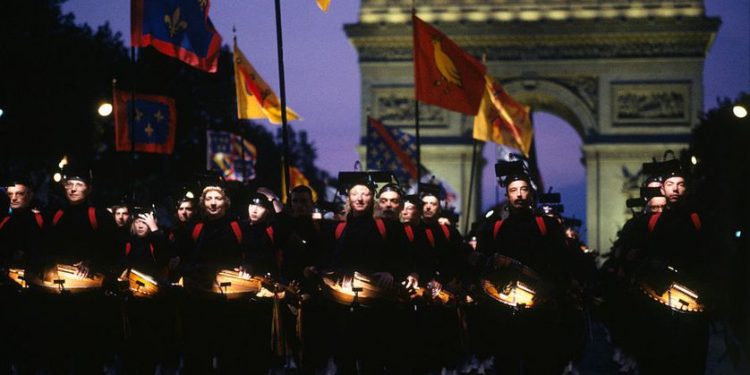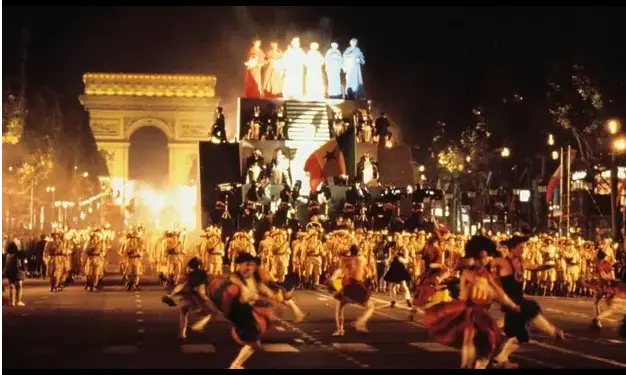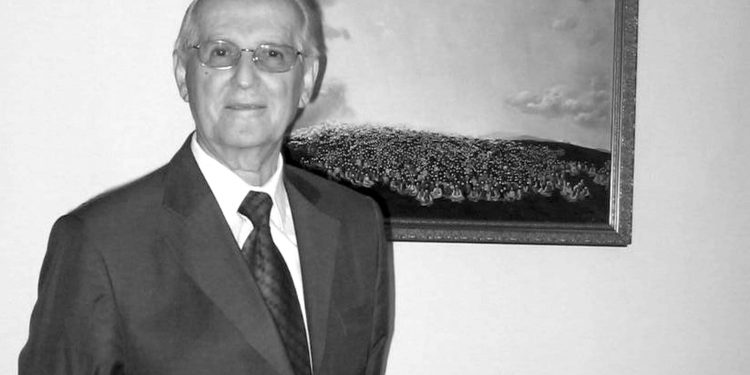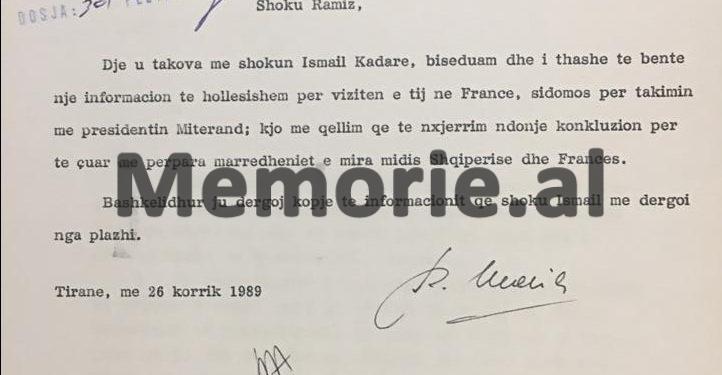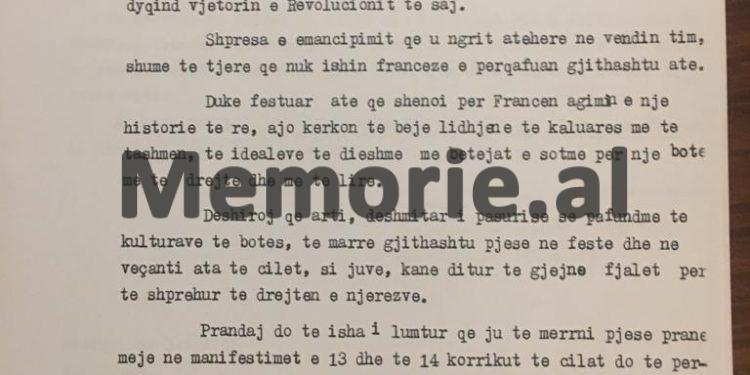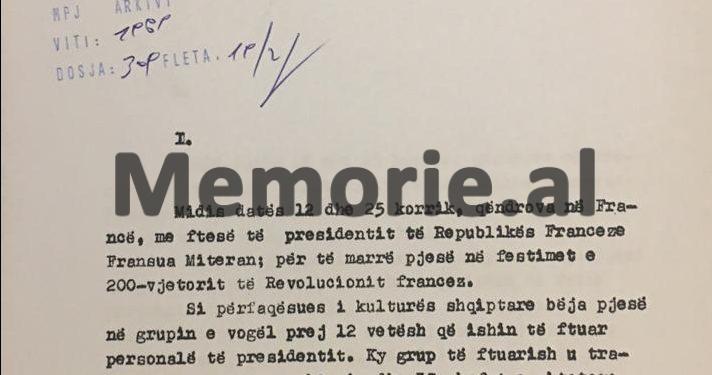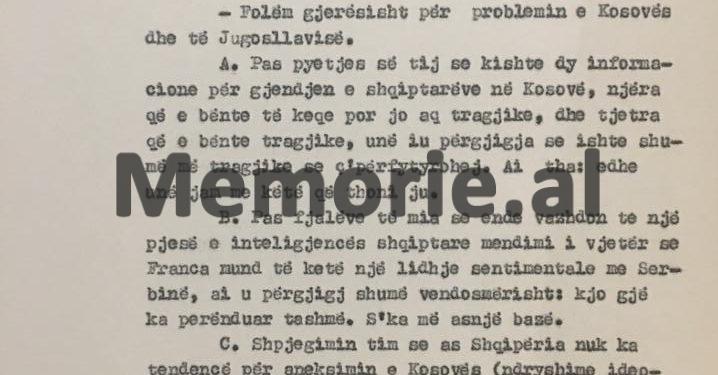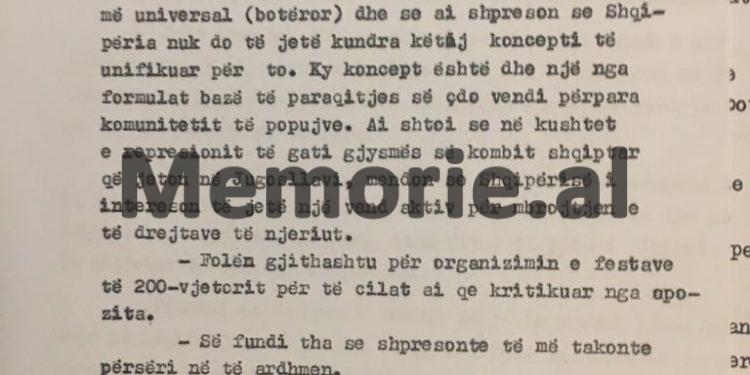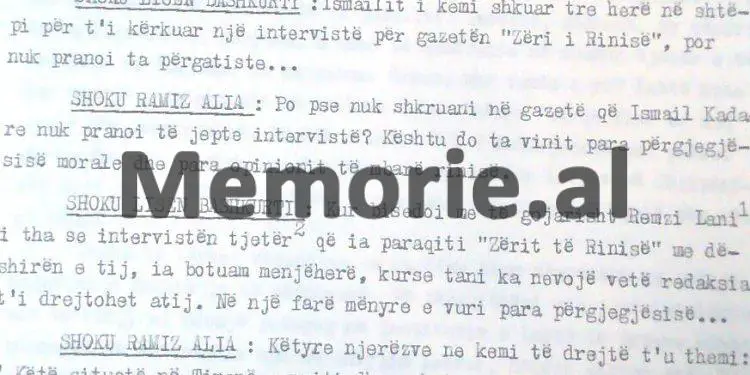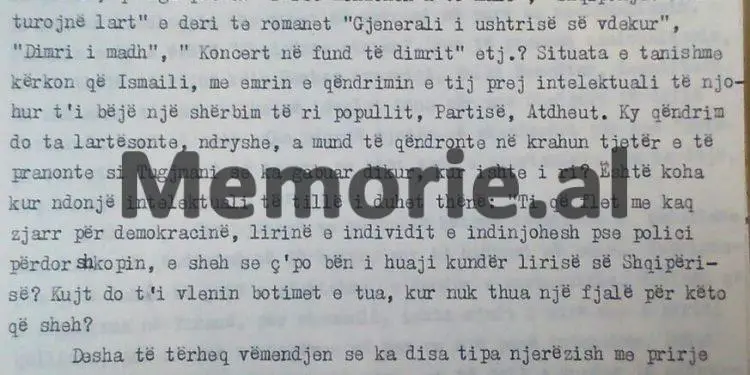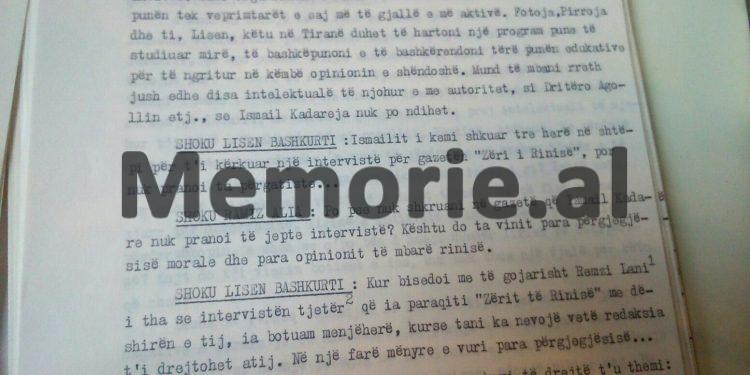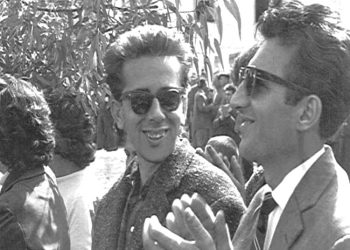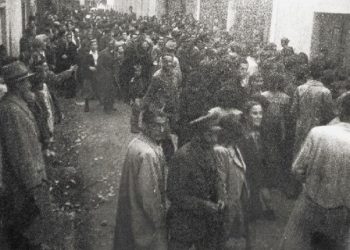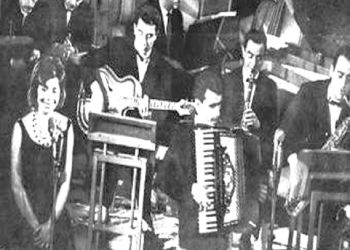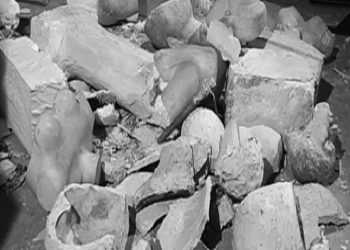Dashnor Kaloçi
Memorie.al publishes some unknown archival documents from 1989 with the official correspondence of the Ministry of Foreign Affairs in Tirana and its holder, Reiz Malile, with the Albanian embassy in Paris and the head of state, Ramiz Alia, where it is about the letter to the French president, François Mitterand, who had just nominally sent the well-known writer, Ismail Kadare, with the address: League of Writers of Albania, where he invited him to participate in the celebrations of the 200th anniversary of the French Revolution that were to be held on July 13 and 14 of that year, where 35 heads of state were invited and Kadare was on the list of 12 close personal friends of the French president who had “forgotten” Ramiz Ali. Why did the head of the Albanian state at that time, Alia, sign the permit for the writer Kadare and what is written in his report on his stay in France where he participated in the celebratory ceremonies of the 200th anniversary of the French Revolution and confidential conversations with President Mitterand?
Information from the Ministry of Foreign Affairs on the French president’s letter
Second Directory
INFORMATION
The French Embassy in Tirana delivered a letter to Comrade Ismail Kadare, sent by the Presidency of France. The letter was sealed. Comrade Ismail Kadare was in Italy and returned on June 1. On June 2, we delivered the letter. He informed us that it was an invitation from the President of France, François Mitterrand, to participate in the celebrations of the 200th anniversary of the French Revolution. It is invited for July 13 and 14 of this year. Today we are notifying the French embassy in Tirana that we have extended the invitation to friend Ismail Kadare.
Tirana, on 3.6.1989
Th. Haxhi
………………………………………………………………………………………………………
The letter of the French president, François Mitterrand to the writer Ismail Kadare
The President of the Republic
Paris, May 9, 1989
Dear Lord
France celebrates this year with a special splendor the 200th anniversary of its Revolution. The hope of emancipation which then arose in my country, many others who were not French also embraced it. Celebrating what marked the dawn of a new history for France, it seeks to connect the past with the present, yesterday’s ideals with today’s struggles for a fairer and freer world. I wish that art, witness to the infinite richness of the world’s cultures, and also participate in the celebration and especially those who, like you, have known how to find the words to express the rights of people. Therefore, I would be happy for you to participate with me in the manifestations of July 13 and 14, which will constitute the most important moment of these ceremonies. Please accept, Lord, the expression of my good feelings!
François Mitterrand.
To God Ismail Kadare
Association of Writers of Albania
Tirana.
………………………………………………………………………………………………..
Minister Reiz Malile’s letter to Ramiz Ali, regarding the telegram from France
Comrade Ramiz
Yesterday I met with friend Ismail Kadare, we talked and I told him to make a detailed report about his visit to France, especially about the meeting with President Mitterrand, this in order to draw some conclusions to further advance the good relations between Albania and France. Attached I am sending you a copy of the information that friend Ismail sent me from the beach.
Tirana on July 26, 1989.
Reiz Malile
……………………………………………………………………………………………….
Writer Ismail Kadare’s information on his stay in France
Information about staying in France on the occasion of the 200th anniversary of the French Revolution
Between July 12 and 25 I was in France at the invitation of the President of the French Republic, François Mitterrand, to participate in the celebrations of the 200th anniversary of the French Revolution. As a representative of Albanian culture, I was part of the small group of 12 people who were personal guests of the president. This group of guests was treated with the same respect as the 35 invited heads of state from the few countries that had such an invitation. (It was the only Balkan country and the second country, together with Poland, from the East). Among the 12 guests, half were writers, including one Latin American (Marquez-nobelist), one African (Soynka-nobelist), one Turkish (Kemal), two Americans (Starjon, and Vejsel) one Albanian (i.e. . representative of Europe). This guest list was announced several times by the French media. During the ceremonies, receptions and dinners hosted by President Miteran, I had the opportunity to meet and talk with various personalities, both political and social. The fact that Albania was represented by a cultural personality attracted their attention. They showed interest in Albania’s relations with other countries as well as in Albanian culture. I talked more extensively with the Minister of Culture of France, Jacques Lang, with the French Foreign Minister, Roland Dyma, with writers, philosophers, etc. More recently, I talked with the French Prime Minister Rokar, as well as with guests from other countries such as Perez de Cuellar, wives of presidents (Mrs. Kohl), etc. Among the political guests, I had the opportunity to talk with the President of Yugoslavia, Derzhovek, as well as with the Minister of Foreign Affairs, Lonçar. We talked with the Yugoslav president about the problems of Kosovo and although the conversation took place in the presence of Zhak Lang, he did not disregard any diplomacy; he said that as a Slovenian, he fully understood the Albanians, that he was on their side and that he was against Serbian chauvinism. When Jacques Lang asked him if there was anything more he could do as president, he shrugged his shoulders in a half-desperate gesture. On July 22, President Miteran invited me to have breakfast at the presidential palace (Elyse). We stayed over an hour and ten minutes. The conversation we had focused on these motives:
The history and culture of the Albanian people, for which he had a good knowledge.
For literature and specifically for my books published in France, most of which he had read.
Regarding the “closure” of Albania, for which he expressed the opinion that although he understands some of our sentiments, he thinks that today’s European political landscape, presupposes an expansion of relations.
In this regard, I tried to explain to him that there are reactionary forces in the world today, which, although they shout about the “closure” of Albania, are very interested in Albania being precisely “closed”, i.e., isolated from the world. As paradoxical as this may seem, these forces wish for it. Example: Serbia, which has based a part of its strategy for Kosovo on this.
He said that he understood the logic of this and when France talked about this closure, it has no ulterior motives or desires. To his question about how the “transition of power” took place, i.e., calmly and without shock, (not) as has happened in some countries of the East, I simply answered positively. Wanted to know about friend Ramiz Alia. He knew that he had worked with propaganda and culture and that I knew him. He felt sympathy for her. We talked extensively about the problem of Kosovo and Yugoslavia.
- After his question that there were two pieces of information about the situation of the Albanians in Kosovo, one that made it bad, but not so tragic, and the other that made it tragic, I answered that it was much more tragic than imagined. He said: “I also agree with what you say.”
- After my words that the old opinion that France may have a sentimental relationship with Serbia still persists in a part of the Albanian intelligentsia, he answered very decisively: “This thing has already passed. There is no basis anymore”.
C. He found my explanation that neither Albania has a tendency to annex Kosovo (ideological, religious differences, etc.), nor Kosovo for the same reasons, perhaps, has this tendency. In short, he found the words that Albania is interested in the stability of Yugoslavia absolutely real and in the logic of things. On the issue of human rights, to my objection that the more individual rights are linked to those of ethnic groups and peoples, the more efficient this action will be, he replied that France has recently been increasingly makes this connection. Regarding this, Miterani said that regardless of the ideas that every country defends and that it was the right of everyone to defend, recently the concept of human rights itself is gaining a more universal (world) consensus and that he hopes that Albania will not be against this unified concept for them. This concept is also one of the basic formulas for presenting any country to the community of peoples. He added that in the conditions of repression of almost half of the Albanian nation living in Yugoslavia, he thinks that Albania is interested in being an active country for the protection of human rights. We also talked about the organization of the 200th anniversary celebration, for which he was criticized by the opposition. Finally, he said that he hoped to meet me again in the future./Memorie.al
Ismail Kadare
Tirana, on 27. 7. 1989




